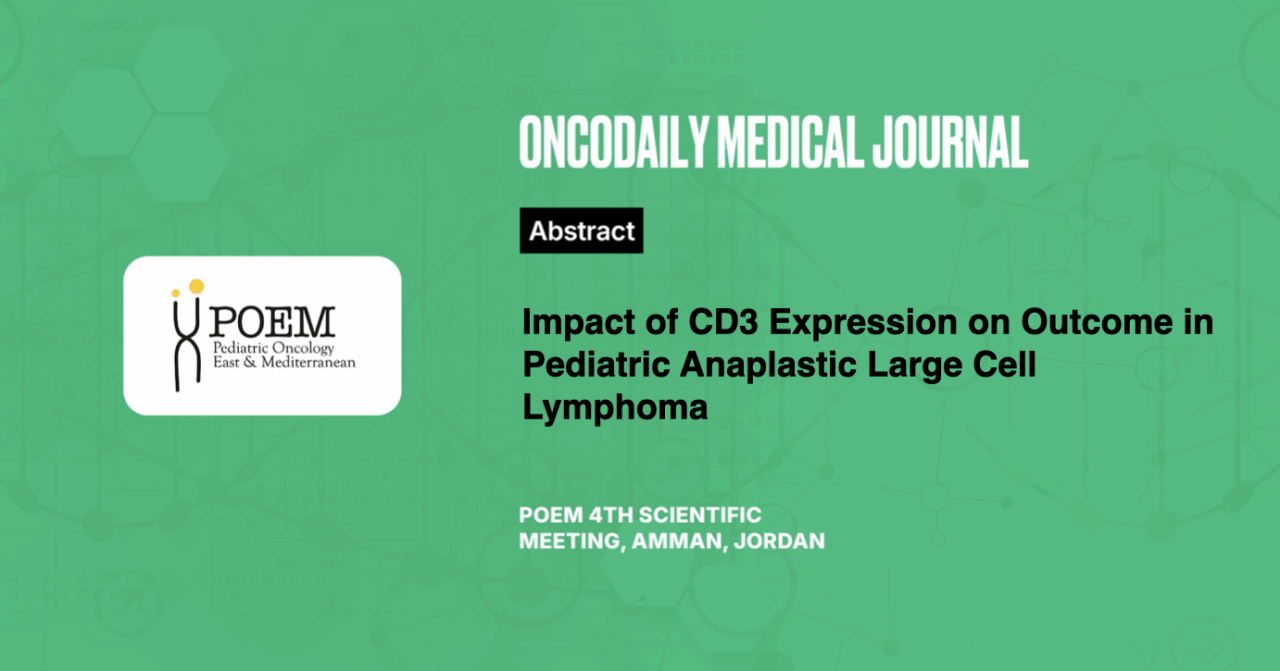Impact of CD3 Expression on Outcome in Pediatric Anaplastic Large Cell Lymphoma
Abstract
Introduction: Anaplastic large cell lymphoma (ALCL) constitutes 10-15% of childhood non-Hodgkin lymphoma. Despite different treatment strategies, event-free survival has remained stable at approximately 70%. Expression of CD3, a T-cell marker, can be lost or diminished in some ALCL cases. The literature is conflicting on whether CD3 expression affects prognosis, and it has been analyzed mostly in the relapse setting. The purpose of this study was to determine the effect of CD3 expression on survival and its relation to the other prognostic variables in newly diagnosed patients with pediatric ALCL treated at a single large pediatric oncology center.
Methodology: A retrospective study was done on 89 newly diagnosed pediatric ALCL patients (under 18 years old) treated at Children’s Cancer Hospital Egypt (CCHE-57357) from July 2007 to December 2019. Immunohistochemistry was utilized to confirm the diagnosis and determine CD3 expression in tumor cells. The impact of CD3 expression on event-free survival (EFS), relapse-free survival (RFS), and overall survival (OS) was analyzed.
Results: The median age was 10.7 years with a male-to-female ratio of 1.8:1. The majority of patients (85.4%) were ALK positive. CD3 was positive in 31 (34.8%) of patients. The median follow-up period was 60 months. The five-year OS, EFS, and RFS rates for the entire group were 84.3%, 73.1%, and 81.5%, respectively. CD3 positivity was associated with a higher incidence of CNS involvement (p=0.03) but did not significantly impact other patient outcomes (EFS, RFS, and OS). However, stage B symptoms and skin involvement were linked to a shorter relapse-free survival.
Conclusion: This study indicates that CD3 expression may not be a major factor predicting survival in newly diagnosed pediatric ALCL. Additional research is needed to understand its association with CNS-positive disease.





